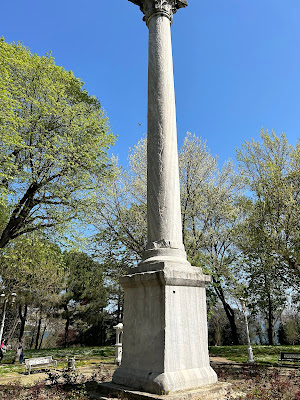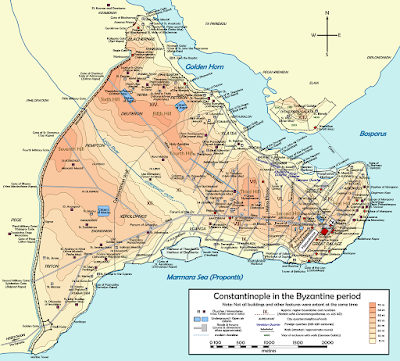I have a complicated relationship with the group Hillsong United. I have heard more than my fair share of their music over the years, a risk (I think) of being in a church demographic that tends to cater to such interests. Some of their work is at best weakly theological. That said, I was exposed to at church in New Home 2.0 that hit it out of the park. And, the video I found is all pictures of the Scottish Highlands, so a sort of double win (run time is 6:27; the scenery is quite nice).
O how high would I climb mountains
If the mountains were where
You hide
O how far I'd scale the valleys
If You graced the
other side
O how long have I chased rivers
From lowly
seas to where they rise
Against the rush of grace
descending
From the source of its supply
Cause in the Highlands and the heartache
You’re
neither more or less inclined
I would search and stop at
nothing
You're just not that hard to find
Chorus:
I will praise You on the mountain
And I will
praise You when the mountain's in my way
You’re the summit
where my feet are
So I will praise You in the valleys all the
same
No less God within the shadows
No less faithful when
the night leads me astray
'Cause You're the heaven where my
heart is
In the Highlands and the heartache all the same
O how far beneath Your glory
Does Your
kindness extend the path
From where Your feet rest on the
sunrise
To where You sweep the sinner's past
O how fast would You come running
If just to
shadow me through the night
Trace my steps through all my
failure
And walk me out the other side
For who could dare ascend that mountain
That
valleyed hill called Calvary
But for the One I call Good
Shepherd
Who, like a lamb, was slain for me
(Chorus)
Whatever I walk through
Wherever I am
Your
Name can move mountains
Wherever I stand
And if ever I walk through
The valley of
death
I'll sing through the shadows
My song of ascent
Whatever I walk through
Wherever I am
Your
Name can move mountains
Wherever I stand
And if ever I walk through
The valley of
death
I'll sing through the shadows
My song of ascent
My
song of ascent
From the gravest of all valleys
Come the
pastures we call grace
A mighty river flowing upwards
From
a deep, but empty grave
(Chorus)
(Source)


























































